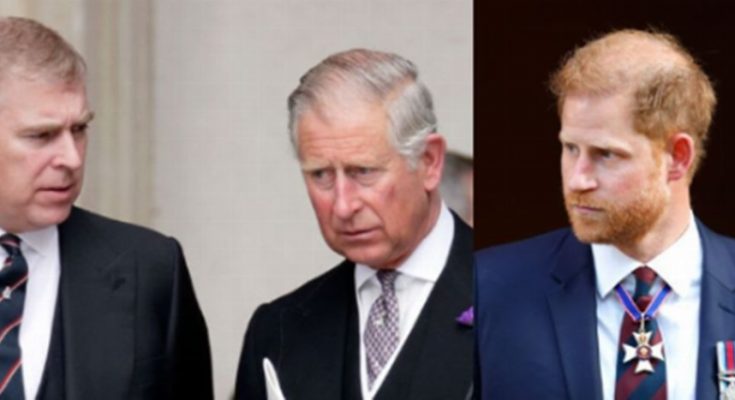n a significant move that underscores the shifting dynamics within the British royal family, King Charles III has reportedly decided to cut off the £1.3 million annual allowance previously allocated to his brother, Prince Andrew.
This decision comes amid the ongoing controversy surrounding Prince Andrew’s public image and his association with scandals that have deeply tarnished the reputation of the monarchy.
Prince Andrew, the Duke of York, has faced a tumultuous few years, particularly in the wake of allegations regarding his ties to the late financier Jeffrey Epstein, who was embroiled in numerous sex trafficking scandals.
These controversies have led to intense public scrutiny and have forced Andrew to step back from royal duties. His reputation has suffered irreparable damage, resulting in increasing isolation from royal activities and public engagements.
The decision to revoke Andrew’s financial support marks a notable shift in the royal family’s approach to managing its members, especially in terms of financial accountability and public perception. With King Charles ascending the throne, there is a clear indication of a desire to streamline the monarchy and distance it from any negative associations. The King’s determination to reinforce the monarchy’s standing is reflected in this decision, as he aims to focus on a more modern, accountable royal family that prioritizes public trust and integrity.
In light of this financial cut, Andrew’s future looks uncertain. The annual allowance has been a significant source of income for him, and losing it could have considerable implications for his lifestyle. Reports suggest that the Duke of York has already faced challenges in managing his finances, leading to an increasingly precarious situation regarding his personal wealth. As a member of the royal family, he has enjoyed a life of privilege, but this change may force him to reconsider his financial strategies and lifestyle choices.

The removal of the allowance also sends a broader message about the royal family’s commitment to addressing the challenges posed by scandal. By taking a firm stance against Andrew’s conduct and the repercussions of his actions, King Charles is attempting to establish a new precedent for how the monarchy will operate in the future. This move aligns with the King’s vision of a leaner royal family that is more in tune with public sentiment, signaling a shift away from the more traditional, often unquestioning support of royal members, regardless of their actions.
In the wake of this decision, questions have arisen regarding the future of Prince Andrew within the royal family and the wider implications for his relationships with other family members. The Duke of York has been increasingly distanced from royal events and public appearances, and this financial cut may further isolate him. The remaining members of the royal family have largely distanced themselves from the fallout of Andrew’s controversies, which could complicate his attempts to maintain connections within the family.
Moreover, this development has ignited discussions about the future of royal funding and how the monarchy will adapt to the changing expectations of the public. With heightened scrutiny on the royal family’s financial affairs, there may be increased calls for transparency and accountability regarding how funds are allocated and managed. The King’s decision to curtail Andrew’s allowance may reflect a broader trend towards reforming royal finances to align with contemporary societal values, ensuring that taxpayer money is spent wisely and ethically.

As King Charles III continues to navigate the complexities of his reign, this decisive action against Prince Andrew underscores a commitment to accountability and a desire to restore public faith in the monarchy. The ramifications of this decision are likely to be felt for some time, as it not only impacts Prince Andrew’s financial stability but also reshapes the royal family’s landscape in a post-Andrew world. The King’s leadership style is becoming increasingly evident, characterized by a willingness to take bold steps to redefine the monarchy’s role in modern society.
In summary, King Charles’s decision to cut off Prince Andrew’s £1.3 million allowance is a significant turning point for both the Duke of York and the royal family. It reflects an ongoing effort to distance the monarchy from scandal and reinforce its reputation amid changing public expectations. As this situation unfolds, it will be interesting to see how it affects Prince Andrew’s standing within the royal family and how the monarchy adapts to these new challenges in the years to come.



